Twice Hero of the Soviet Union Grechko Andrei Antonovich
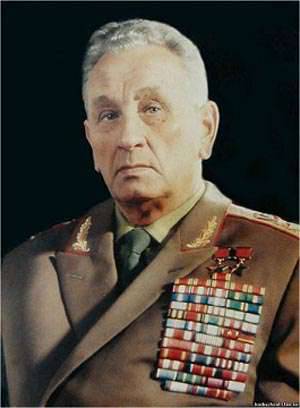 40 years ago, 26 April 1976, Minister of Defense Andrei Antonovich Grechko passed away. The son of a blacksmith and dashing cavalry, Andrei Grechko served in the Civil War under the authority of Budyonny, went through the entire Great Patriotic War, commanded a cavalry division, then a cavalry corps, army. In 1967, Andrei Antonovich was appointed to the post of Minister of Defense of the USSR, becoming 33-m head of the military department in stories country. So, the peasant son has come a long way from the ordinary to Marshal of the Soviet Union, the head of the defense department of the Soviet empire. Grechko as a whole remained in the memory of the military as a zealous and active master of the military department, in which the defense of the USSR got stronger.
40 years ago, 26 April 1976, Minister of Defense Andrei Antonovich Grechko passed away. The son of a blacksmith and dashing cavalry, Andrei Grechko served in the Civil War under the authority of Budyonny, went through the entire Great Patriotic War, commanded a cavalry division, then a cavalry corps, army. In 1967, Andrei Antonovich was appointed to the post of Minister of Defense of the USSR, becoming 33-m head of the military department in stories country. So, the peasant son has come a long way from the ordinary to Marshal of the Soviet Union, the head of the defense department of the Soviet empire. Grechko as a whole remained in the memory of the military as a zealous and active master of the military department, in which the defense of the USSR got stronger.Andrei Antonovich Grechko was born on 4 (17) in October 1903 in the settlement of Golodayevka, Don Region (now - Kuybyshevo village, Kuybyshevsky district of the Rostov region) in a blacksmith family. He became the thirteenth child in the family. His youth fell on a civil war, and he chose a military path. In his memoirs, he will later write: “In 1919, parts of 1-th Horse passed through our village. With envy, I looked at the dashing Budennovka with red stars on their caps. Proud bearing, daring caused admiration in my boyish soul. There were many young people among the Red Army men who went into battle for Soviet power. And I decided to come along with them at all costs. ”
The advancing troops needed ammunition. For their delivery was mobilized equestrian transport of peasants. Andrei Grechko, on his horse, brought ammunition to Rostov. After one of the battles, he was fortunate enough to meet fellow countryman Stepan Vasilenko, at that time the squadron commander. It was he who helped Andrew to realize his dream, took with him to his squadron, gave off a riding horse and weapon. Shortly after the liberation of Rostov in January 1920, the Red Army soldier Grechko visited Golodaevka, visited his family and said that he decided to link his life with the Red Army. Father Anton Vasilyevich Grechko approved the choice of his son and said: “I served Russia for 12 for years, as it should be, fought with the Turks, liberated Bulgaria, rose to Feldwebel, and once was honored - the general shook my hand at the review. Stand up, son, and you are so honored. " So, 16-year-old youth Andrei Grechko joined the 11 Cavalry Division of the First Cavalry Army. Then the father did not guess that time would pass and the simple peasant son would reach the highest ranks in the Soviet Army.
His service continued on the Don in the detachment named after MV Krivoshlykov, then in the battalion of special purpose units of Taganrog. As one of the best Red Army men, in 1922, he was sent to study - first at the Crimean cavalry courses named after the All-Russian Central Executive Committee, and then at the Taganrog cavalry school of the North Caucasus Military District (SKVO). In 1924, study again - first as a cadet, then as a foreman of a squadron of the North Caucasian Mountain National Cavalry School of the North Caucasus Military District. Studying in the cavalry school was repeatedly interrupted - Grechko participated in hostilities against the gangs of Makhno and Marusi in Ukraine, then in Chechnya and Dagestan.
In 1926, at the end of the cavalry school, Andrei Grechko was appointed platoon commander, then a machine-gun squadron of the 61 Cavalry Regiment of the 1 Special Cavalry Brigade named after Comrade I. Stalin of the Moscow Military District. In the attestation of 1930 on A. Grechko, the regiment commander N. M. Dreyer noted: “He has the strength of will, knowledge, demanding of subordinates ... He is interested in business. He is working on himself in his military and educational background. ” The diligence and diligence of the young commander was noticed, and in 1932 he became a student of the Frunze Military Academy, after which in 1936 he was appointed to the headquarters of the Special Red Banner Cavalry Division of the Moscow Military District.
Captain A.A. Grechko. 1936
In May, 1938 was appointed Commander of the 62 Cavalry Regiment, then Assistant Chief of Staff and, finally, Chief of Staff of the Special Red Banner Cavalry Division named after Comrade. I.V. Stalin Belarusian military district. In 1939, he participated in the campaign of the Red Army in the western regions of Belarus. In 1939, he became a student of the KE Voroshilov General Staff Military Academy, from which he graduated in 1941.
Thus, Andrei Antonovich enters the Great Patriotic War as a mature, well-trained commander, behind whom are two academies. In July, 1941 Grechko was promoted to the rank of colonel, and he was appointed commander of the 34 Cavalry Division. The division fought in early August as part of the 26, 38, then 6 armies with German troops south of Kiev. In the heavy battles of 1941, cavalry units under his command steadfastly held defenses, retreated only by order, and more than once made raids into enemy rear. In November, 1941 Grechko was promoted to the rank of Major General, and in January, 1942 was appointed commander of the 5 corps, who took part in the Barvenkovo-Lozovsky offensive operation. The cavalry, in cooperation with the infantry units, crushed the enemy in the area of Barvenkovo and advanced deep into the rear of the enemy. Grechko's cavalrymen showed models of selflessness and martial art in those battles.
From March 1942, Mr. Andrei Grechko headed the operational group of troops, which, as part of the Southern Front, fought hard against the Nazis in the Donbas. Then the young commander was appointed commander of the 12 army, which later actively participated in the ensuing battle for the Caucasus. Andrei Antonovich later recalled these difficult days: “But no matter how bravely, fighters and commanders fought selflessly, our units continued to retreat. We retreated to the Don, the 12-I army retreated just east of Rostov. Somewhere very close was my native village Golodayevka. It was not easy on the soul. Many of us left places dear to our heart, close people. The steppe was strewn all around, dotted with beams and slopes, in the distance there were groves and orchards. Everything is painfully familiar, teasing soul. And it seemed that even the air, filled with the smell of thyme and wormwood, was here in a special way, reminiscent of a distant childhood. For me, Motherland began with these places. From a small house in the village of Golodayevka, where I was born, with comrades, classmates, whom fate has now scattered along military roads, with a teacher - strict, but infinitely kind, constantly making sure that in life we are honest, hardworking people who love their Homeland. I remember father Anton Vasilyevich and mother Olga Karpovna. It was not easy for them to raise and raise children. But our parents were fourteen. ”
Since September, Grechko served as commander of the 47 Army, whose troops did not allow the Wehrmacht to break through into the South Caucasus along the Black Sea coast. In October, the 1942 General joined the command of the 18 Army, which held defenses near Novorossiysk. Having stopped the advancing German troops, the 18-I army part of the forces conducted a successful operation to eliminate the Wehrmacht's Semash group, which was trying to overcome the Main Caucasus Range.
In January 1943, the troops of the Transcaucasian Front (from the end of January - the North Caucasus Front) launched a general offensive. In the area of the Black Sea Group of Forces, the 56 Army, which Grechko led in early January, delivered the main blow. In February-March 1943. The 56 Army as part of the North Caucasus Front successfully launched an offensive, participating in the Krasnodar offensive operation, during which Krasnodar and hundreds of settlements were liberated. At the end of April, 1943 of Mr. A. Grechko was given the rank of lieutenant general. In September-October, the 56 Army, in cooperation with the 9 and 18 armies, conducted the Novorossiysk-Taman offensive and liberated the Taman Peninsula.
As recalled by Marshal of the Soviet Union, V. Kulikov: “The outstanding organizational skills and leadership talent of A. A. Grechko in the heroic battle for the Caucasus were revealed with particular force. The troops led by him showed resilience and courage, delivering crushing blows at the enemy. ... In all the operations that were led by General Grechko, the courage of his plans, the unshakable will to carry them out, and personal courage were invariably manifested. "
9 October 1943 A.A. Grechko was given the military rank of colonel general, and 16 October after completing the defeat of Hitler's troops in the Kuban, the commander was appointed deputy commander of the Voronezh Front (October 20 - 1 Ukrainian Front). The troops of this front participated in the liberation of the capital of Ukraine - Kiev. From December 1943 until the end of the war, Andrei Antonovich led the 1 th guards army. Under his leadership, the army participated in the Zhytomyr-Berdichev, Proskurov-Chernivtsi, Lviv-Sandomierz, Western Carpathian, Moravian-Ostrava and Prague operations. With heavy fighting, Grechko’s guards marched to Prague, where they celebrated Victory Day.
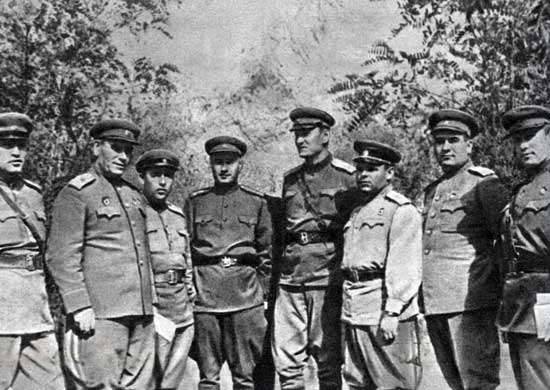
The commander of the 56 Army, Lieutenant General A. A. Grechko (4 on the right) among the officers and generals of the 11 Guards Corps. 1943
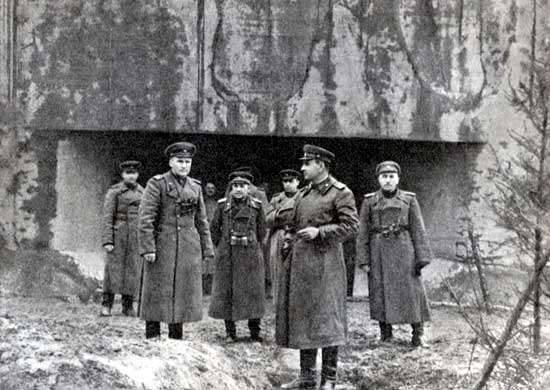
Commander 1-th Guards Army, Colonel-General A.A. Grechko (in the center) with officers of the army headquarters on the Arpad line (Eastern Carpathians). 1944
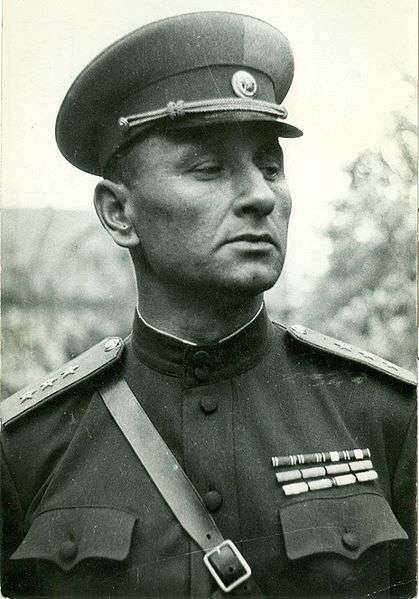
A. A. Grechko in 1945
The merits of General A. A. Grechko during the war years were marked by high awards - the Order of Lenin, the 2 Order of the Red Banner, the Orders of Suvorov 1 and 2, Bohdan Khmelnitsky, 1, Kutuzov, 1. These awards were received by those commanders and commanders who showed “extraordinary successes in troop command, excellent organization of military operations, and demonstrated determination and perseverance in their conduct.” Marshal of the Soviet Union G.K. Zhukov noted in his memoirs that the Supreme Commander I.V. Stalin of the commanders of armies considered the most talented generals A. A. Grechko and K. S. Moskalenko.
After the war, Andrei Antonovich commanded the troops of the Kiev Military District. Grechko conducted decisions of the Supreme Soviet of the USSR on the demobilization of older ages of personnel; large-scale organizational arrangements for the reorganization of troops, political organs and staffs in relation to the requirements of peacetime. The places of permanent deployment of troops were determined, a training material base was created, parks, warehouses, housing for officers were built, training and political training sessions were organized in units and subunits. The soldiers of the Kiev district rendered substantial assistance in restoring the national economy of the country: they took part in demining, cleared the streets in cities and towns from debris, restored houses, enterprises, mines, cultural and educational institutions, built bridges, provided electricity supply, restored water supply, etc. e. In 1947-1953 under the leadership of Grechko, the district troops conducted a series of large-scale exercises, mastering new weapons.
Grechko successes were noted. From 1953, Andrei Antonovich, Commander-in-Chief of the Group of Soviet Forces in Germany, which was the most important in the western strategic direction. Soon he was given the rank of army general. In 1955, Grechko was awarded the title of Marshal of the Soviet Union. From November 1957 - First Deputy Minister of Defense of the USSR - Commander-in-Chief of the Ground Forces, from 1960 - First Deputy Minister of Defense of the USSR, Commander-in-Chief of the Joint Armed Forces of the States Parties to the Warsaw Treaty Organization. Grechko was an active participant in the anti-Khruschev conspiracy.
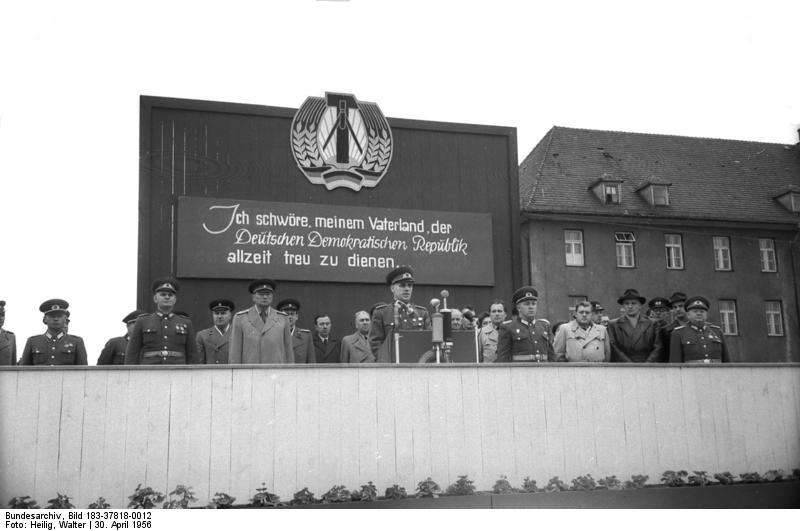
Commander-in-Chief of the GSVG A. A. Grechko at the parade of the troops of the National Independent Academy of Independent States. 1956
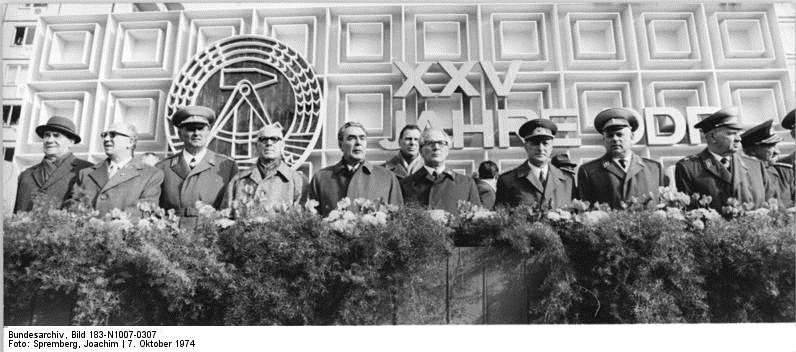
USSR Minister of Defense A. A. Grechko (3 on the left) at the parade of the NNA GDR troops. 1974
By decree of the Presidium of the Supreme Soviet of the USSR 1 February 1958, for courage and heroism shown in the struggle against the Nazi invaders, Andrei Antonovich Grechko was awarded the title Hero of the Soviet Union with the award of the Order of Lenin and the Gold Star medal. Grechko’s second “Gold Star” was awarded by decree of the Presidium of the Supreme Soviet of the USSR 16 of October 1973 of the year for merits to the Motherland in the construction and strengthening of the Armed Forces of the USSR.
In April 1967, Marshal of the Soviet Union, A. A. Grechko was appointed Minister of Defense of the USSR. In this post, he did a lot to strengthen the defense capacity of the country and its Armed Forces. He was distinguished by his strong-willed and resolute character, which he demonstrated during the events in Czechoslovakia and the war in Vietnam, during the Arab-Israeli war, the Soviet-Chinese armed conflict in the Far East.
Under the leadership of the Minister of Defense, the most important documents on the preparation and conduct of operations were adopted. Andrei Antonovich adopted and implemented a number of significant decisions in military construction. An important event was the training of generals and officers of the operational-strategic link at the Higher Academic Courses at the Academy of the General Staff and the Military-Political Academy. A large number of reserve officers were regularly called up for 2 years in order to accumulate the combat potential of personnel. The Institute of Warrant Officers was established. The training system for sergeants has changed radically: instead of regimental schools with their discrepancies in the programs, methodology and educational and material base, educational divisions were established - tank, motorized rifle, artillery, district training centers are formed. In the 1970s, the armament of the army and fleet A new generation of military equipment and weapons arrived.
The most important tenets of the theory of nuclear war have been studied in numerous strategic exercises and games. Among them, of particular importance was the strategic command and staff exercise “The decisive blow” held by the Minister of Defense in 1970, which was attended by the country's top leadership. The exercise was conducted with real missile launches and with full-scale use of all control systems and all central command posts without exception. The Soviet Army conducted the exercises "Neman", "Spring Thunder", "East", "West", "North", "Ocean". Under the leadership of Grechko, in the 1970-s, strategic exercises of the “Center” type were conducted with the launch of land, air and sea-based missiles. For the first time in a single complex with the deployment of the Armed Forces and their strategic use in the war, the issues of transferring the national economy from peace to martial law, the work of the economy in a “special period” were solved, the extent of damage and losses was assessed, possible amounts of rehabilitation were determined. A coherent system of operational-strategic exercises (front-line, district, coalition, etc.) was created in theaters of operations. From 1971, operational-strategic exercises of the air defense, air force, and navy were conducted, during which questions of command and control of the armed forces and arms of the armed forces were worked out. As a result, the combat power of the Soviet Union increased significantly. The West was forced to look for new methods of dealing with the Soviet civilization, abandoning the possibility of direct aggression.
As Marshal Viktor Kulikov noted: “If you look at the development and improvement of our Armed Forces over the entire post-war history, then Marshal A.A. Grechko can surely be called a military reformer. The first of these reformers was JV Stalin. Much did for the Armed Forces marshals G. K. Zhukov and A.M. Vasilevsky. Andrei Grechko is standing in this glorious row. The development of the Armed Forces and military equipment, the daily increase in the combat readiness of all types of weapons was in the center of his attention. The Minister of Defense not only participated in the leadership of our military-technical policy, but also personally visited the tests of the most up-to-date types of military equipment, dealt with the general designers in detail each type of the presented weapon. ... In general, the reformation of the Armed Forces when Marshal A. Grechko was the USSR Minister of Defense was successful, and had a positive effect on the life and activities of the army and navy.
It is also necessary to note the merits of Grechko in the theoretical generalization and historical analysis of the Soviet military construction, the functioning of the Soviet Armed Forces. Andrei Antonovich devoted to the army the capital scientific theoretical work "The Armed Forces of the Soviet State". Since 1973, he has been the editor-in-chief of the 12-volume encyclopedic edition of The History of the Second World War 1939 — 1945. In the last years of the life of the Marshal of the Soviet Union, memoirs “Through the Carpathians”, “Liberation of Kiev”, “Battle for the Caucasus”, “Years of War.” Were written and published. 1941-1943.
Grechko from his youth was distinguished by his strength and health. He led an active lifestyle, made long walks. Grechko's fan for the company with Leonid Brezhnev (the marshal and the general secretary were friendly) often visited football and hockey matches. Moreover, he was an avid sportsman: he played volleyball and tennis with pleasure and well. It is interesting that Andrei Antonovich not only kept himself in shape, but also attracted direct subordinates to regular physical education classes: even marshals played volleyball. Regardless of their positions, they came together twice a week early in the morning to the CSKA Weightlifting Palace and trained for the full program for an hour and a half. Grechko himself warmed up and played volleyball along with everyone, showing, so to speak, by personal example, that it is not worthwhile to part with physical exercise, no matter what age you are.
USSR Minister of Defense Marshal of the Soviet Union A.A. Grechko died on April 26. 1976. Buried in Moscow on Red Square near the Kremlin wall.
Marshal of the Soviet Union A.A. Grechko in the troops of the 2 Guards Tank Corps. 1972
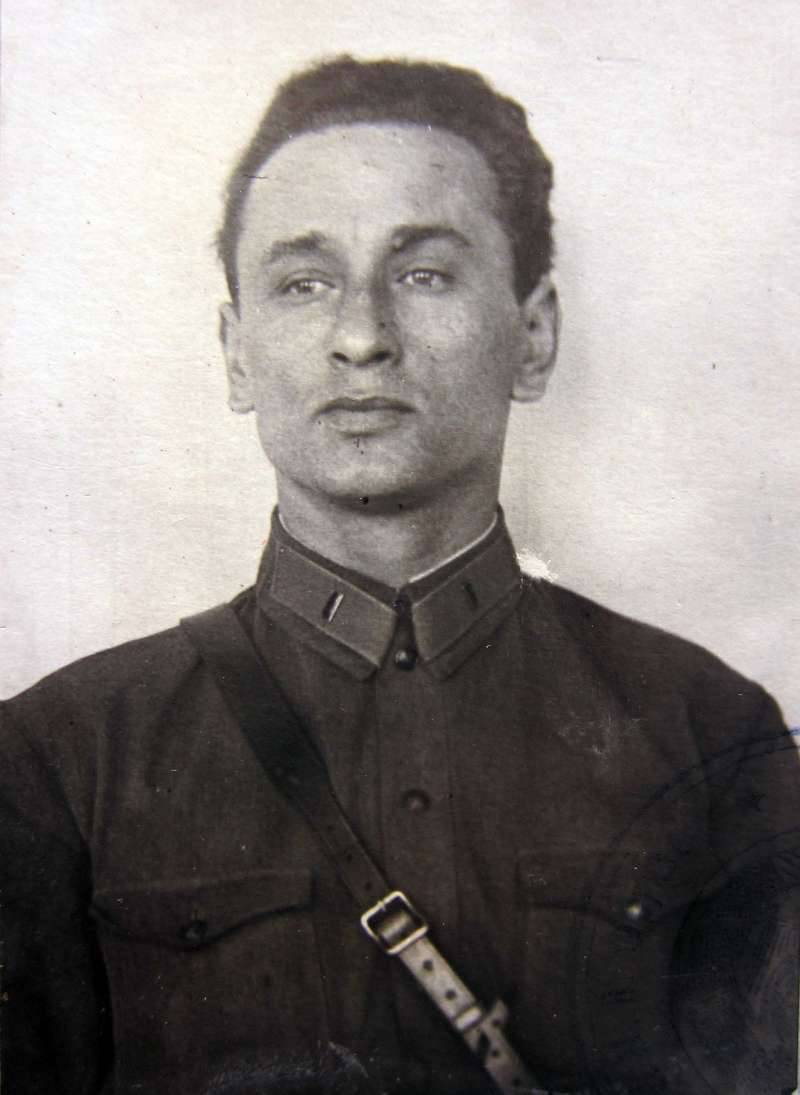
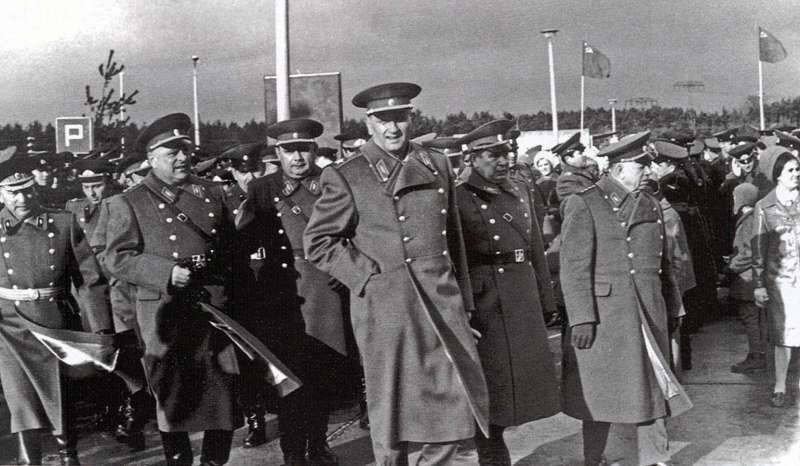
Information